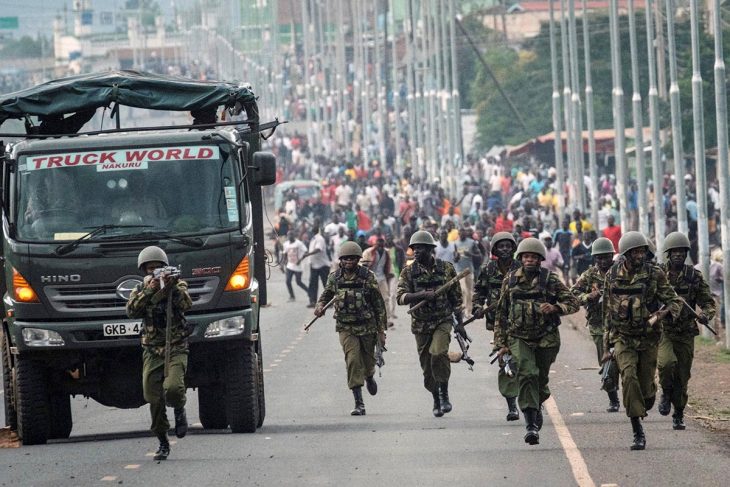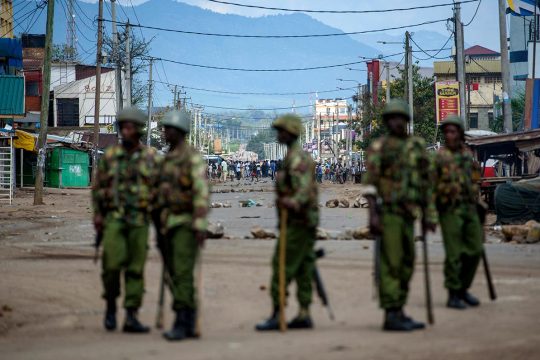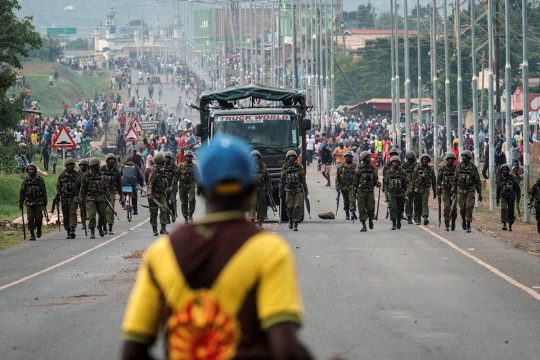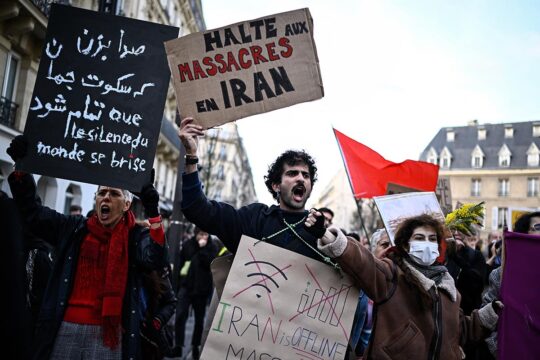To listen to the podcast, click on the "play" button below:
The first crimes against humanity case to be brought in Kenyan national courts concerns the ethnically-based violence that took place after the 2017 presidential elections in Kenya. The local Office of the Director of Public Prosecutions (ODPP) has now announced a plan to prosecute individuals responsible for the killing of “Baby Pendo”, shootings and sexual violence, among whom are members of the police.
We talked to Kathy Roberts and Maxine Marcus, co-founders of Partners in Justice International, who have worked together with the ODPP and the Independent Policing Oversight Agency (IPOA) to investigate these cases. Max and Kathy tell us how this investigation, the first to apply the Kenyan 2008 International Crimes Act – the domestication of the International Criminal Court Rome Statute – came about.
We also heard from Nairobi-based journalist and long observer of international justice Tom Maliti. He talks about the scale of the killings and how Kenyans see their police. And Geoffery Lugano, lecturer at Kenyatta University, is sceptical about whether the court will manage to go high enough up the chain of command or whether it will stop at the lower rank alleged perpetrators.
 ASYMMETRICAL HAIRCUTS
ASYMMETRICAL HAIRCUTS
This podcast has been published as part of a partnership between JusticeInfo.net and Asymmetrical Haircuts, a podcast on international justice produced from The Hague by journalists Janet Anderson and Stephanie van den Berg, who retain full control and independence over the contents of the podcast.







